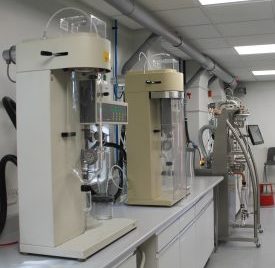News
28th November 2019 - Selecting a Spray Dryer for Development Studies and Clinical Manufacture
When customers initiate discussions with Upperton, one of the first questions we are asked is “which spray dryer(s) do you have and how much material can they produce?”
Whilst these are very pertinent questions, the answer is not a simple one.
Selection of a spray dryer that is appropriate for the project in question needs to take into account a number of key factors. These are varied and may be driven by one or more of the following considerations:

- The quantity of API available for development studies
- The potency and handling characteristics of the API
- The amount of dry powder formulation required (batch size)
- The solids content of the feed solution and the batch size will dictate the volume of liquid to be spray dried per batch – a spray dryer with suitable evaporative capacity will be selected
- The solvent(s) used to make up the feed solution (aqueous, organic or mixed systems) will dictate whether the drying gas will be air or nitrogen
- Atomisation method – spray dryers can use two-fluid, sonicating or pressure spray nozzles.
- Target particle size distribution (particle engineering) – spray dryers use a cyclone collection system; cyclone design will impact on the size range of particles collected
- Stage of development (feasibility studies, formulation/process development or GMP clinical manufacture)
At Upperton we have a range of pharmaceutical spray dryers and selecting which one is appropriate for a particular study will involve consideration of all of the above factors.
Spray Dryers at Upperton
In our R&D spray drying facility we have two types of laboratory scale development spray dryer: The Buchi B290 and the ProCepT 4M8-TriX. The B290s can be fitted with an inert closed loop system for spray drying flammable solvents or delicate APIs under nitrogen.
Scale up to a GEA Niro Mobile Minor spray dryer is initially performed within our non-GMP pilot plant, where 2-3 kg batches can be produced for toxicology studies or tablet formulation development studies.
Within our GMP manufacturing facility, we have a ProCepT 4M8-TriX spray dryer for small scale clinical material (up to 300 g batch size) and a GEA Niro Mobile Minor for larger scale (up to 3 kg batch size) clinical manufacture from aqueous feed solutions. Clinical manufacturing from solvent-based feed solutions is performed using our GEA Niro SD Micro spray dryer, under nitrogen in an open loop configuration.
Selecting the Appropriate Spray Dryer
The process requirements and selection of appropriate spray dryer are summarised in the table below:
Process Requirement
Multiple small batches (early feasibility studies)
Spray Dryer of Choice
Büchi B290
Rationale
Quick and easy to set up and clean down. Can produce batch sizes of 100 mg to 100 g.
Particle engineering of dry powders for pulmonary or nasal devices
ProCepT 4M8-TriX
Particles of 1-150 µm can be produced. A range of two-fluid nozzle tips (0.15 mm to 1.2 mm) are available to control droplet size and allow fine tuning of the particle size. An ultrasonic nozzle is also available for production of very large particles.
Solvent spray drying (development batches)
Büchi B290
An inert loop is available for spray drying flammable solvents under nitrogen (closed loop).
Solvent spray drying (clinical manufacture)
GEA Niro SD Micro
Flammable solvents are spray dried under nitrogen with an open loop system to avoid cross contamination.
Potent APIs (non-GMP)
Büchi B290
ProCepT 4M8-TriX
The B290 can be sited within a walk-in fume hood and the ProCepT 4M8-TriX can be enclosed within an isolator for more potent APIs.
PC control of process parameters and data
ProCepT 4M8-TriX
Computerised control unit with recording and reporting of critical process data.
Larger scale non-GMP batches (aqueous systems, up to 30 L feed solution)
GEA Niro Mobile Minor
Spray dryer situated in Upperton non-GMP pilot plant. Ideal for producing 2-3 kg material for toxicology / stability studies or dosage form development studies.
Clinical manufacture (aqueous systems, up to 2.5 L feed solution)
ProCepT 4M8-TriX
Spray dryer sited within our GMP manufacturing facility.
Clinical manufacture (aqueous systems, up to 30 L feed solution)
GEA Niro Mobile Minor
Spray dryer situated in Upperton GMP facility. Ideal for producing 2-3 kg batches of clinical material.

